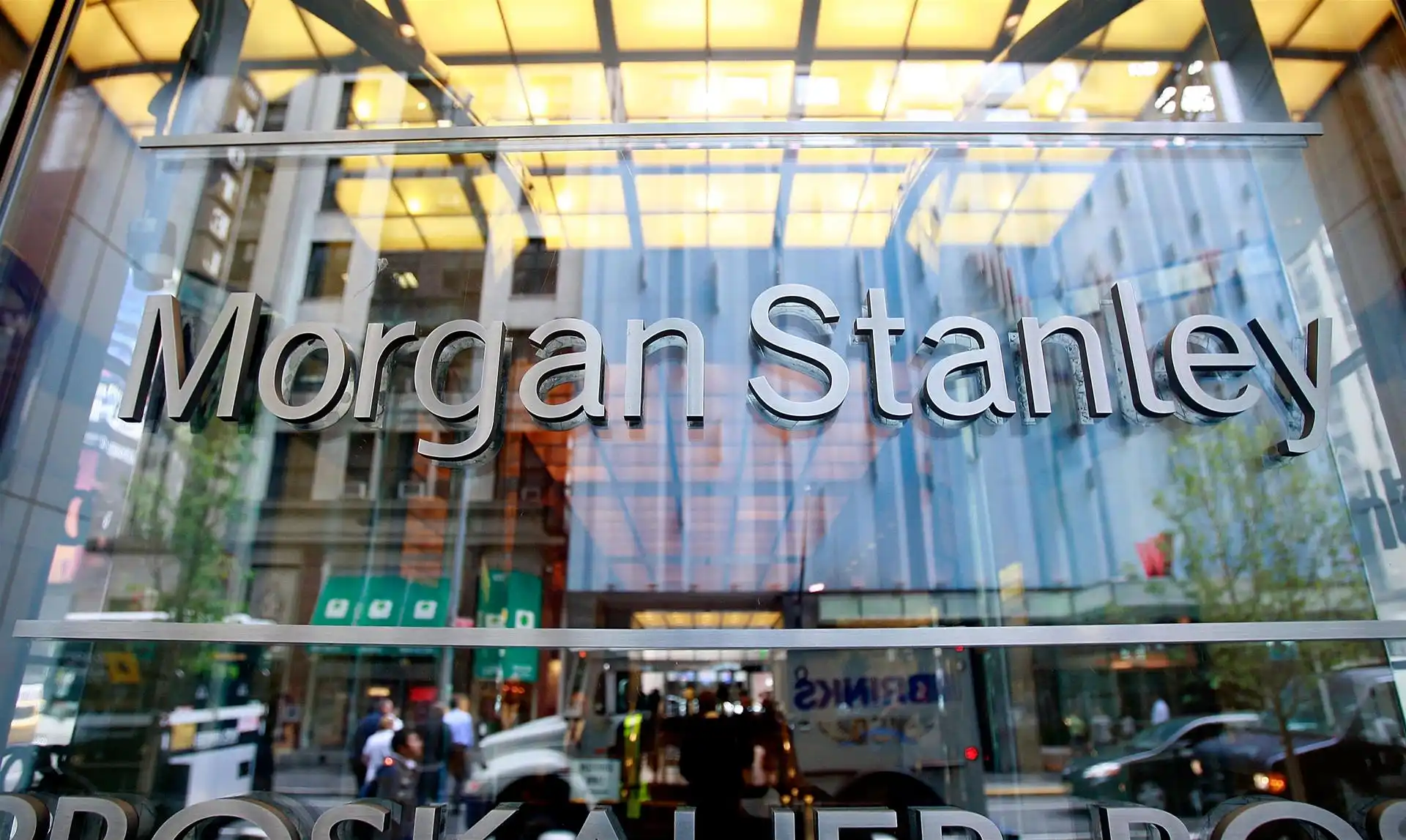In 2025, the cryptocurrency industry is gradually moving from the fringes to the mainstream, with the U.S. capital markets becoming the center stage of this trend. From the crypto fintech company Antalpha seeing its stock price soar 70% on its first day of trading and triggering a circuit breaker, to the global leading exchange Coinbase set to join the S&P 500, and the Bitcoin mining company American Bitcoin going public through a reverse merger causing its stock price to skyrocket, a wave of crypto companies is entering Nasdaq through initial public offerings (IPOs) or reverse mergers, igniting investor enthusiasm.
At the same time, Wall Street giants like Morgan Stanley, Bank of America, and Royal Bank of Canada have sensed the opportunity and are making moves to get a piece of the pie, especially in the context of the Trump administration's strong support for the crypto industry. The latest prediction from crypto asset management company Bitwise adds fuel to this trend, claiming that 2025 will be the "Year of Crypto IPOs," with companies like Circle and Kraken poised for action. This wave not only showcases the maturity of the crypto industry but also injects fresh blood into the capital markets.
Crypto Companies Flooding the U.S. Stock Market
Antalpha is a fintech company focused on crypto asset management, trading, and infrastructure services, officially debuting on the Nasdaq Global Market on May 14, with the stock code "ANTA." On its first day of trading, Antalpha's stock price skyrocketed 70%, triggering a circuit breaker, and ultimately closing at the daily limit. This debut not only excites investors but also marks Antalpha's successful transition from a specialized player in the crypto field to the spotlight of traditional finance.

Meanwhile, Coinbase, the "big brother" of crypto exchanges, is also experiencing a moment of glory. Coinbase is set to be included in the S&P 500 index, becoming the first crypto company to achieve this honor. This is not only a recognition of Coinbase but also a milestone acknowledgment of the mainstreaming process of the entire crypto industry. The S&P 500 gathers the top companies in the U.S. economy, and Coinbase's inclusion signifies that crypto assets are being accepted by the traditional financial system. Market analysis firm QCP Capital excitedly predicts that this event could become a new "catalyst" for the crypto market, attracting more institutional investors and driving the prices of assets like Bitcoin to new highs. Back in 2021, Coinbase's direct listing was handled by top investment banks like Goldman Sachs and JPMorgan, and now its S&P 500 status further solidifies its position as an industry leader.

In addition to direct IPOs, reverse mergers have become a "fast track" for many crypto companies to enter the public market. Among them, the case of Trump’s son’s Bitcoin mining company American Bitcoin is textbook-worthy. As a subsidiary of mining giant Hut 8, American Bitcoin plans to go public on Nasdaq under the stock code "ABTC" through a merger with Gryphon Digital Mining. This deal has attracted significant attention due to the endorsement from the Trump family, and upon the announcement, Gryphon Digital Mining's stock price surged 330%. Hut 8 CEO Asher Genoot boldly stated that this listing is "the next big step in low-cost Bitcoin accumulation," aiming to create a "Bitcoin bank." This not only demonstrates the flexibility of reverse mergers but also highlights the influence of political backgrounds in the crypto industry.

Another player, Galaxy Digital, is also not to be outdone. This crypto asset management company plans to go public on Nasdaq on May 16 and is currently awaiting final approval from its shareholders. Galaxy Digital's business covers trading, investment, and consulting, aiming to provide crypto financial services to institutional and high-net-worth clients. However, its Q1 2025 report showing a loss of $295 million has dampened investor enthusiasm. Nevertheless, the market remains optimistic about its IPO prospects, with investors full of expectations for its long-term potential.
Additionally, Amber International has gone public through a merger, landing on Nasdaq under the stock code "AMBR," further enriching the landscape of crypto companies in the public market. Companies like Gemini (the crypto platform supported by the Winklevoss twins), Bullish (the exchange backed by Peter Thiel), Circle Internet Financial, and Kraken have also been rumored to have IPO plans, potentially materializing as early as 2025.
A Two-Way Rush?
Behind the IPO frenzy lies not only the internal momentum of the crypto industry but also the strong entry of Wall Street giants. For a long time, traditional financial institutions have taken a wait-and-see approach to the crypto market, with high risks and regulatory pressures holding them back. However, the arrival of the Trump administration has completely changed the rules of the game. Self-proclaimed "crypto president" Trump promised to make the U.S. the "global crypto capital," quickly signing an executive order on digital assets and promoting the SEC to establish a crypto task force led by industry advocate Hester Peirce. David Sacks, the White House crypto affairs head, is even studying the feasibility of creating a national Bitcoin reserve. These policies act as a shot in the arm, clearing obstacles for crypto companies to go public and igniting enthusiasm on Wall Street.
Morgan Stanley is at the forefront of this transformation. According to insiders, this previously low-profile investment bank in the crypto field is actively reaching out to potential clients, eager to handle crypto companies' IPOs. In 2024, Morgan Stanley assisted Coinbase in issuing convertible bonds and was hired by IREN to explore monetization opportunities in the AI data market. Now, it is gearing up to showcase its capabilities in the IPO frenzy. Bank of America is also not to be outdone, with its investment banking executives discussing how to promote digital asset trading, eyeing the hundreds of billions of dollars in fees in this market. CEO Brian Moynihan stated in an interview with CNBC at the beginning of 2025 that once regulations are clarified, the bank will "go all out" in trading.

Royal Bank of Canada (RBC) is also speeding up its efforts. At the end of 2024, RBC assisted crypto mining company Core Scientific in issuing convertible bonds, and its official website shows that since the 2024 U.S. elections, market activity among crypto issuers has surged. Although RBC started late, it is cautiously accelerating its layout. Additionally, investment banks like Jefferies Financial Group, Moelis & Co., and Cantor Fitzgerald are also emerging in crypto trading. For example, Jefferies is consulting with JPMorgan for Bullish's potential listing and assisting Figure Technologies in preparing for its IPO. Even HSBC has quietly taken action, with its senior forex strategist adding the title of "Head of Digital Asset Research," indicating that traditional finance's interest in the crypto field is heating up.

"Why is 2025 the Year of Crypto IPOs?"
The crypto industry is maturing. After more than a decade of ups and downs, cryptocurrencies have grown from "wild growth" speculative assets to an important part of the global financial system. Coinbase's inclusion in the S&P 500 and Antalpha's successful listing indicate a significant increase in traditional finance's acceptance of crypto companies. Going public not only earns companies credibility but also brings in more institutional funds for the industry.
Bitwise's latest forecast boldly claims that 2025 will be the "Year of Crypto IPOs," pointing out three major engines driving this trend: active participation from regulators, support from institutional investors, and strong demand from market investors.
First, the improvement of the regulatory environment is key. In the past, the SEC's strict scrutiny forced many IPO plans to be shelved, and banks were required to pause crypto activities. Typically, companies would publicly file S-1 documents 6 to 8 months after submitting drafts, but the complexity of the crypto industry made the process full of uncertainties. The Trump administration's pro-crypto policies have opened the green light for companies, and the newly established SEC crypto task force is expected to accelerate approvals, paving the way for IPOs from companies like Circle, Kraken, Figure, Anchorage, and Chainalysis.
Second, the need for financing is a core driving force. Crypto companies often require substantial capital, such as mining companies purchasing expensive ASIC miners, exchanges upgrading technology platforms, and asset management firms developing new products. Going public provides companies with a direct financing channel, helping them cope with market fluctuations and accelerate expansion. For instance, American Bitcoin plans to strengthen its mining business through private financing, while Galaxy Digital hopes to alleviate financial pressure through its IPO.
Finally, investor enthusiasm has injected strong momentum into the trend. The entry of Wall Street giants indicates that crypto is no longer on the fringes. The strategic shift of Morgan Stanley and Bank of America, along with the active involvement of Goldman Sachs and JPMorgan in Coinbase and Bullish transactions, all demonstrate that institutional confidence in crypto companies is growing day by day. This support not only provides companies with professional financial services but also attracts more institutional funds into the market. Antalpha's first-day limit-up and Gryphon Digital Mining's stock price surge showcase the market's enthusiasm for crypto companies. Sol Strategies and Exodus plan to go public on Nasdaq and the New York Stock Exchange, further igniting investor enthusiasm. Bitwise points out that more crypto companies going public will attract retail investors to participate in the industry through the stock market, without the need to directly hold crypto assets, which will rebuild trust and unleash significant capital.
Will Crypto Mainstreaming Really Affect Coin Prices?
In the long run, this IPO frenzy will accelerate the mainstreaming of the crypto industry. Coinbase's S&P 500 status, Antalpha's successful listing, Wall Street's entry, and Bitwise's prediction of a "Year of Crypto IPOs" signify that crypto assets are integrating into traditional portfolios, shedding the "speculative" label. As more companies go public, the industry will attract more institutional and retail funds, further expanding the market size. Bitwise notes that listed companies will lower the entry barriers for investors through the stock market, enhancing transparency and trust.
At the same time, the trend will intensify competition within the industry. Exchanges, mining companies, and asset management firms will compete to innovate, offering lower trading fees, more efficient mining technologies, or richer financial products. This competition will benefit consumers and enhance the industry's competitiveness. The professional management from Wall Street will also drive market standardization.
Globally, the IPO frenzy in the U.S. may trigger a chain reaction, encouraging crypto companies in Canada, Europe, and other regions to follow suit, forming a global crypto capital market. This will promote the globalization of the industry and provide more opportunities for investors.
This IPO frenzy will profoundly reshape the crypto market, bringing both opportunities and risks. On the positive side, the trend has significantly boosted market confidence. Coinbase's S&P 500 status marks the industry's maturity and may attract more traditional investors, driving up the prices of crypto assets. The IPO plans of companies like Antalpha, Amber International, and Gemini demonstrate the appeal of crypto companies in the public market. Bitwise emphasizes that the public market will force companies to disclose more financial data, enhancing transparency and rebuilding investor trust.
Moreover, the trend will drive industry consolidation. Reverse mergers provide a shortcut for small and medium-sized enterprises to enter the public market, lowering the IPO threshold. For example, American Bitcoin quickly achieved its listing goal through a merger. This model may inspire more companies to follow suit, accelerating resource integration and optimizing market structure. The involvement of Wall Street investment banks will also enhance trading professionalism and inject more capital into the industry.
Advancements in technology and infrastructure will also benefit from the trend. Once listed companies secure funding, they can invest in technological innovation. For instance, Hut 8 is collaborating with Bitmain to develop efficient mining equipment, Coinbase is upgrading its trading platform, and Galaxy Digital may launch new financial products. These initiatives will drive technological progress in the industry and enhance user experience.
However, risks cannot be ignored. First, financial volatility is a concern. Galaxy Digital's loss of $295 million in the first quarter exposed the vulnerability of crypto companies amid market fluctuations. Overvaluation may create bubbles, and if investor confidence wavers, stock prices could plummet. Second, regulatory uncertainty remains. Although current policies are lenient, future regulatory changes could impact listed companies, especially under SEC scrutiny. Finally, market speculation overheating may exacerbate volatility. Gryphon Digital Mining's stock price surge of 330% highlights speculative characteristics, which could lead to market instability.
免责声明:本文章仅代表作者个人观点,不代表本平台的立场和观点。本文章仅供信息分享,不构成对任何人的任何投资建议。用户与作者之间的任何争议,与本平台无关。如网页中刊载的文章或图片涉及侵权,请提供相关的权利证明和身份证明发送邮件到support@aicoin.com,本平台相关工作人员将会进行核查。




